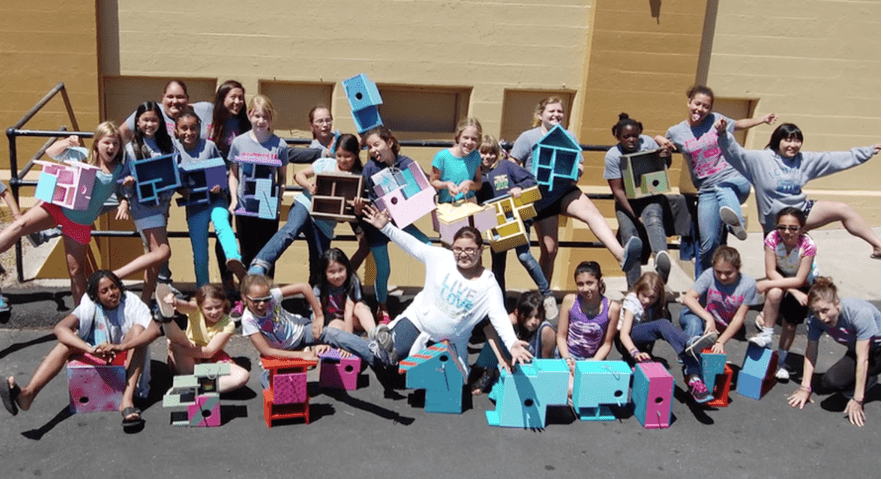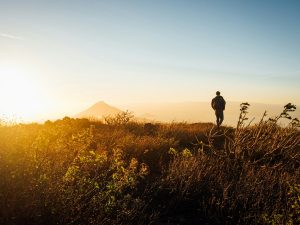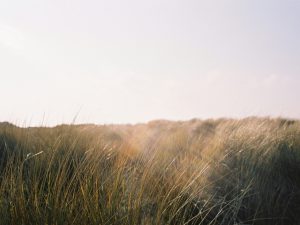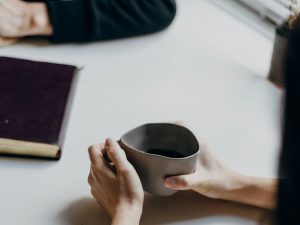In 2008, Emily Pilloton founded Project H, a non-profit that teaches building and design skills to youth, with an emphasis on girls and children of color.
Project H has three different arms: Workshop H, which is geared toward adult learners, and Studio H, which is an in-school class for kids from grades 6-12 and Camp H, which is for girls ages 9-12.
Studio H is a design and building class currently based out of a charter school in Berkeley, California. This program was the beginning of Project H and was initially started in the rural community of Bertie County, North Carolina with two designers and one revolutionary idea:
What if you could bring back shop class but orient the projects around things that the community needed?
Pilloton asks this in the trailer to a documentary film, If You Build It, on Project H’s beginnings in Bertie County with ten students who had one year to build projects that would improve their community.
Students from this class have built a farmers market pavilion, their own school library, a pop-up park, tiny homes, roadside farm stands and much more. Pilloton encouraged students to spend their time on projects that would make a difference in the lives of others in the hopes that they would ultimately be excited to go to school every day and learn skills that could benefit their rural town.
Camp H, the final arm of Project H’s course offerings, is a design and building camp that teaches girls ages 9-12 how to cut plywood with a jigsaw, fuse metal with a welder and create projects of personal and social relevance. The program is taught entirely by female architects, designers, creative educators and graduates of the program.
“Its intended for girls a little bit younger, just as a way to get them excited in a non academic space about design and to reinforce some math and science learning.,” Pilloton said.
According to a recent report released by the Girl Scouts, women account for only 20% of bachelor’s degrees in engineering, computer science and physics and hold only 25% of STEM jobs. Pilloton hopes that her programs can be a part of the solution by nurturing girls interest in STEM fields.
“There’s something special about making as a young woman and what that does for your confidence. Around this age is when girls become disenchanted with math and science,” she said. The looks on their faces are just as valuable as any of that data. I get to help make other makers and not just do the research.”












